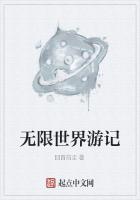President Summers, Ladies and Gentlemen:
I am deeply moved and grateful to receive an honorary degree from Harvard and for having the undeserved privilege to speak at this ceremony. This is a very special occasion and I wish to use it, first of all, to pay sincere tribute to Harvard’s outstanding achievements in advancing knowledge and in educating men and women from this great country and from all over the world. Harvard-elder, gracious, and wise sister of my own alma mater-long life to you!
With pride I acknowledge the links between Harvard and another great nation: my beloved Mexico. For many years, the history, the biodiversity and geography, the arts and culture, and the economic, social and political life ofMexico have been expertly researched and taught in Harvard‘s cubicles and classrooms. Significant numbers of my compatriots have had the privilege of a good Harvard education and some have even had the honor of teaching here.
Harvard is an institution that has made a great difference to you, ladies and gentlemen, and indeed it has to all the people of the United States and to humanity at large. You are right to be proud of this great institution.
You also should be proud of many other institutions that the United States has envisioned and nurtured and that have provided great service to this nation and to the world.
I am speaking of those international institutions that, by promoting the causes of peace, prosperity, and human rights, have helped decisively to improve the quality of human life in the last 50 years. The world improved over its execrable performance of the first half of the 20th century not solely but significantly because of the international system of rules and institutions that was developed in the period around the end of the Second World War. This afternoon I want to speak to you for this international system.
Why did American and other world leaders in the 1940s and 50s devote so much energy and so many resources to building international institutions? Because they has learned the bitter lessons of two world wars and a depression. Because they had seen the destruction that results when nations are divided and pursue only their own self-interest. And so they sought to create a system, anchored in freedom, openness, and the rule of law, that would support the security and prosperity of all its members.
How well has this system worked?
Like any human creation, it has had its shortcomings and even some big failures. But its successes are impressive beyond doubt.
International Institutions have fostered a greater convergence of values than ever in human history. For the first time in history, most of the world’sgovernments are democratic. Principles of democracy, individual liberty, and the rule of law are almost universally accepted. Even regimes that routinely violate these principles proclaim their allegiance to them-proving that freedom has won the argument! A principal reason for this universality of rights and values is the wide array of United Nations documents that define and prescribe them. Starting with the Universal Declaration of Human Right, the UN has orchestrated a series of global covenants that together make up the body of international law. Let us remember that none of this was foreordained. It is owned to the patient efforts of committed individuals and governments across the world.
The multilateral order has also presided over the greatest period of wealth creation in human history. The impressive economic expansion achieved by the United States and other industrial countries would not have been possible without the multilateral economic system. The great strides we have seen in technology, health care, and the many other things that enhance the quality of our lives emerge directly from this prosperity. In the developing world, millions of people have been lifted out of poverty, though much more remains to be done. Again, none of this was foreordained. The international economic order has encouraged nations to trade and interact with each other. Without this framework, we would live in a much worse world than we do today. Allow me to emphasize this: international cooperation has not been a useless abstraction. It has been a powerful and tangible force driving global prosperity.
Today, however, the international system may be in crisis. Deep disagreements have emerged about how best to combat new threats to international peace and security and how best to preserve and extend prosperity in the world.
Contempt for the multilateral system can be seen in the marginalization of the UN, the trans-Atlantic rift, the division in NATO and the EuropeanUnion, and the current resentment among old friends, neighbors, and partners.
Does the record warrant this contempt?
Certainly not, as I have just argued. But that is not the relevant question. What is at stake now is not the interpretation of the past but the building of the future. So the relevant question is: At the beginning of this new century, marked by unquestionable unipolarity, who needs the multilateral system?
My claim (along with many others), is that all nations, even the most powerful, need the multilateral system.
Certainly the weaker member of the international community would prefer to navigate in the international arena according to agreed international rules, and by means of institutions in which their voices can be heard and their legitimate interests represented recognized. This case for multilateralism is too clear to need elaboration.















